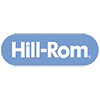The certification process is explained in the document "Application for CB Scheme certification".
CB Scheme certification, or the OC system (in French), is an international system of mutual acceptance among IECEE member countries for test reports and certificates concerning the safety of electrical and electronic components, equipment, and products. CB Scheme certification simplifies access to international markets for these products, particularly by reducing costs and lead times.
CB Scheme Certification
The CB Scheme certification validates a product's conformity to international standards for electrical and electronic products and equipment in 54 countries (including the USA, Canada, Japan, China, etc.). The CB Scheme can be used as proof of conformity for multiple international certification marks (CSA, UL, etc.) through a single testing campaign, which can significantly reduce associated costs.
It is intended for any manufacturer of electrical/electronic equipment wishing to export abroad and currently covers 23 categories of electrical/electronic equipment.
Advantages: Reducing costs and lead times typically associated with multiple testing campaigns (one per country).
The CB Scheme certificate, issued by a certification body (known in English as a National Certification Body, or NCB), can be accepted by other NCBs in the 54 member countries of the IECEE (International Electrotechnical Commission for Electrical Equipment). The IEC (International Electrotechnical Commission) is the world’s leading organisation responsible for developing and publishing international standards for everything related to electricity, electronics, and associated technologies.
How is CB Scheme Certification Issued?
As a Certification Body (NCB) operating within the CB Scheme, LNE partners with a CB Scheme testing laboratory (CB Testing Laboratory – CBTL), which may be either an in-house LNE laboratory or an external laboratory.
Operational Mode: The CBTL laboratory establishes test reports recognized by LNE, which, as a certification body (NCB), issues CB Scheme certificates recognized in all IECEE member countries.
LNE's CB Scheme Offer
LNE is recognized for electromedical equipment (MED), electromagnetic compatibility (EMC), measurement and laboratory equipment (MEAS), information technology and audio/video devices (ITAV), and cybersecurity (CYBR).
The CB Scheme certification issued by LNE addresses the normative requirements for safety, electromagnetic compatibility, and cybersecurity for electrical and electronic products according to the following standards:
- Electromedical equipment (MED category) with the IEC 60601-X series of standards
- Measurement and laboratory equipment (MEAS category) with the IEC 61010-X series of standards
- Information technology and audio/video equipment (ITAV category) with the IEC 62368-X series of standards
- Electromagnetic compatibility (EMC category) covering various IEC standards series
- Cybersecurity (CYBR category) with the IEC 62443 series of standards and ETSI 303 645
The complete list of standards applicable to LNE's CB Scheme is available on the IECEE website.
New: Focus on CB Scheme CYBR Certification
The CB Scheme CYBR certification focuses on cybersecurity. Its primary objective is to provide guarantees in terms of IT security. It meets the industry's need to protect data integrity and ensure the proper functioning of their products or equipment against increasing risks such as incidents, accidental data transmission, service interruptions, and more critical situations like industrial espionage or takeover.
The CB Scheme CYBR certification is based on the IEC 62443 series of standards and ETSI 303 645 that address cybersecurity challenges, whether for domestic equipment, medical devices, industrial controllers, or electronic equipment:
- IEC 62443-3-3: Requirements for system security and security levels
- IEC 62443-4-1: Risk management and security policies associated with systems
- IEC 62443-4-2: Technical security measures implemented for systems
- ESTI 303 645: cybersecurity for consumer IoT devices.
To be able to offer CB Scheme CYBR certification, LNE, as the National Certification Body (NCB) Certification Body (NCB) operating within the CB Scheme CYBR, has teamed up with with LEXFO, a specialist in cybersecurity risk assessment as CB Testing Laboratory (CBTL).
More information (in french)
How to obtain CB Scheme certification
LNE clients testify
Le LNE effectue en outre les essais pour valider la conformité des produits Hill-Rom afin d’obtenir la marque NF ainsi que le marquage CE, ce qui permet notamment à Hill-Rom de se positionner au niveau de la qualité lors des appels d’offre.






